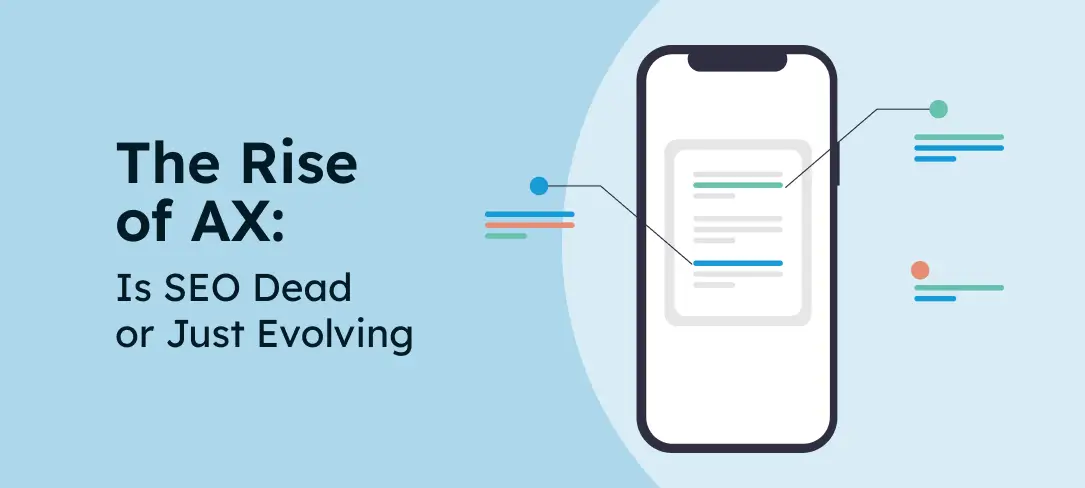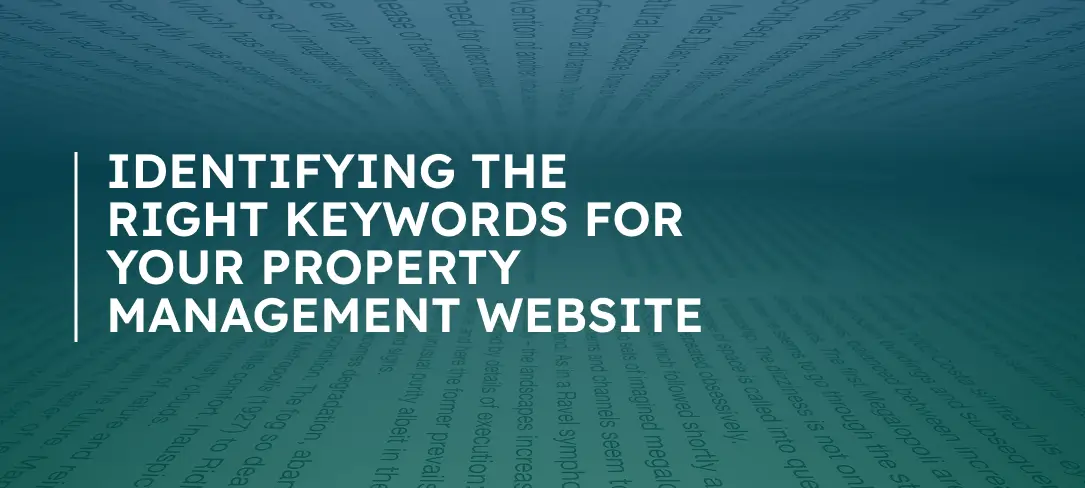There’s a shift happening in search—and if you blink, you might miss it.
You’ve heard of UX (User Experience). Now meet AX: Agent Experience—the emerging standard for how content is being discovered, processed, and delivered by AI-powered search agents like Google’s new Search Generative Experience (SGE), OpenAI’s ChatGPT, and Perplexity.
These aren't your traditional search engines. They don’t just list links. They synthesize. They summarize. They solve.
So what does this mean for property management companies who rely on website traffic and local SEO to generate leads?
Let’s dive into the rise of AX, why it matters, and how Property Manager Websites (PMW) is preparing for the next evolution of search.
What Is AX (Agent Experience)?
AX stands for Agent Experience, and it refers to how AI-powered user agents (think: ChatGPT, Google SGE, Perplexity, Claude, etc.) consume, understand, and retrieve your content in response to user queries.
Instead of a search engine user typing “property management company in Palm Springs” and seeing 10 links, they now get a single synthesized answer, often pulled from multiple sources—including (hopefully) your website.
That user agent becomes the middleman between your business and your future customer.
To be considered in these results, your site must be structured, technically sound, and informationally useful. And the content must be written in a way that helps the agent understand your business, location, services, and differentiators—without relying on a user clicking your link to find them.
What’s Changing: Google’s New Search Agent Layout
Google is already rolling this out.
In Search Labs, Google’s SGE replaces traditional blue links with a smart answer box generated by AI. It provides a detailed summary, followed by follow-up questions—and only later down the page do you see traditional organic results.
This is the start of the zero-click era—where users don’t visit websites to get answers; they stay on the AI platform.
Key features of Google’s new layout:
AI-generated summaries with citations (sometimes)
Conversational follow-ups like “Who is the best property manager in my area?”
Fewer link clicks, more answers directly on the page
Is SEO Dead?
Not quite. But traditional SEO as we know it is evolving fast.
Keyword stuffing and chasing high-volume, low-competition terms won’t cut it anymore. The future of search isn’t about ranking higher in the link list—it’s about being included in the AI’s answer.
This means technical SEO, schema markup, structured content, internal linking, and authoritative expertise are now the must-haves.
And content must do more than attract a click—it must answer the question clearly, directly, and contextually.
Why This Matters for Property Management Companies
Most property management companies rely on their websites to generate owner leads. But if traffic drops due to zero-click answers, what happens?
Here's what it means:
Your website still matters, but the way it’s built and structured matters more
Your content needs to solve problems, not just sell services
Local SEO will shift toward local authority building, not just citations and keywords
FAQs, reviews, schema, and structured data will determine if you’re “seen” by user agents
This is why PMW is doubling down—we’re not just building beautiful websites anymore. We’re building front-end experiences for users and back-end frameworks for AI agents.
PMW: Building for AX and UX Simultaneously
At PMW, we’ve always prioritized user experience—but now, we’re pioneering how property management websites are optimized for Agent Experience (AX) as well.
Here’s how we’re adapting:
Structured Content Blocks: Clear, scannable sections with headers and answers that AI agents can parse quickly
Local SEO Enhancements: Area pages and service descriptions tailored for both user engagement and AI relevance
Full Schema Integration: Including FAQs, services, reviews, locations, and business info for better machine readability
Fast, Mobile-First Design: Because even user agents prefer performance-optimized pages
Technical SEO as a Foundation: Clean code, optimized metadata, and logical internal linking
We’re making sure our clients don’t get left behind as search evolves.
AX Timeline: When Will AI Agents Take Over Search?
Let’s be clear: the takeover has already started.
2023: ChatGPT launches with browsing capabilities, becoming a top entry point for casual searchers
2024: Google launches SGE in beta; Perplexity AI rises in popularity
2025: Over 25% of U.S. search traffic is influenced by AI summaries or zero-click answers, especially in local and service-based industries
2026 and beyond: AI agents are expected to handle 40–50% of information queries, becoming a new layer between your site and the end user
If you're not already building for AX, you're playing catch-up.
How Much Search Are LLMs Pulling Away from Google?
According to recent studies:
ChatGPT is responsible for over 10 million search queries per day
Perplexity and Claude see growing user bases, especially among tech-savvy professionals
Google's SGE interface is impacting as much as 40% of its search results in experimental rollouts
In local verticals like property management, the shift is already visible: less traffic, but more intent-driven conversions—if you're showing up where it counts.
AX = Problem Solver, Not Replacement
Let’s clear up one myth: AX doesn’t replace websites—it changes how they’re read.
A strong AX-ready site should:
Present clean, well-organized answers
Offer trust signals like reviews, local offices, licenses, and service details
Use structured data so the agent can understand your site as a whole
Still look great and convert leads when a user does visit your site
Think of AX as the invisible SEO layer between your website and the future of search.
What Property Management Companies Should Do Now
Audit your site for schema, speed, clarity, and crawlability
Stop chasing just volume keywords—focus on intent, clarity, and local expertise
Update your FAQ pages, reviews, and testimonials—these are gold for AX
Create content that answers questions clearly and directly
Partner with a company building for both UX and AX (hint: that’s us)
Frequently Asked Questions (FAQs) for AX
What’s the difference between UX and AX?
UX (User Experience) focuses on how human users interact with your website—design, speed, mobile usability, and intuitive navigation. AX (Agent Experience), on the other hand, refers to how AI agents like ChatGPT, Google SGE, and Perplexity understand, process, and summarize your site’s content to answer user queries. Optimizing for both ensures your site serves real users and is visible to AI-driven platforms.
Why is structured data important for AX?
Structured data (like schema markup) helps AI agents interpret your content accurately. It identifies key information such as services, locations, contact info, reviews, and FAQs. Without it, AI may overlook your site or misrepresent your services, leading to missed opportunities in AI-generated answers.
Does local SEO still matter in an AX world?
Yes—local SEO is evolving, not disappearing. Traditional local tactics (like directory listings and NAP consistency) still matter, but they now need to be combined with local authority-building content, schema, and trust signals (e.g., reviews, licenses, and office locations) that AI agents can understand and prioritize.
Can I still rank on Google if I don’t adapt for AX?
Technically, yes—but you’ll likely lose visibility in AI-generated summaries, which are rapidly becoming the top section of the search results page. This zero-click environment means fewer users scroll down to traditional links, so adapting for AX is essential to stay relevant and competitive.
How do I know if my website is AX-ready?
Your site is likely AX-ready if it includes:
Fast load times
Mobile-first design
Clear, structured content with headers and summaries
Schema markup for services, reviews, FAQs, and business info
Updated and relevant local content
PMW offers comprehensive audits to evaluate and optimize your site for AX.
Is AI replacing the need for websites?
Not at all. AI agents rely on websites to pull content—they don’t generate knowledge from nothing. Your site remains your digital storefront. AX optimization ensures that AI agents find, interpret, and cite your site as the source when users ask questions.
What kind of content works best for AX visibility?
Clear, well-structured content that directly answers user questions is best. FAQs, how-to guides, service descriptions, and locally relevant content tend to perform well. Avoid fluff—agents look for clarity, authority, and problem-solving value.
How does PMW help property managers adapt to AX?
PMW is designing websites with both UX and AX in mind. We implement full schema integration, optimize for speed and structure, build local SEO relevance, and create content that’s AI-readable and human-friendly. We ensure our clients stay ahead of the shift in search.
When should I start optimizing for AX?
Now. AI-powered search is already affecting visibility, especially in local service industries like property management. The earlier you adapt, the more likely you are to maintain (or grow) your digital presence as search behavior continues to change.
Final Thoughts: Adapt or Get Replaced
Search is changing. The days of being on “page 1” are fading. The new question is: Will your business be part of the answer?
Agent Experience (AX) is here. And PMW is leading the way for property management companies to stay ahead of the curve.
Your next customer might not click a link—they might just ask an AI. Let’s make sure the answer includes you.
Need help building an AX-ready website?
Talk to our team at PMW—we’re building the future of lead generation for property managers.





.webp)

